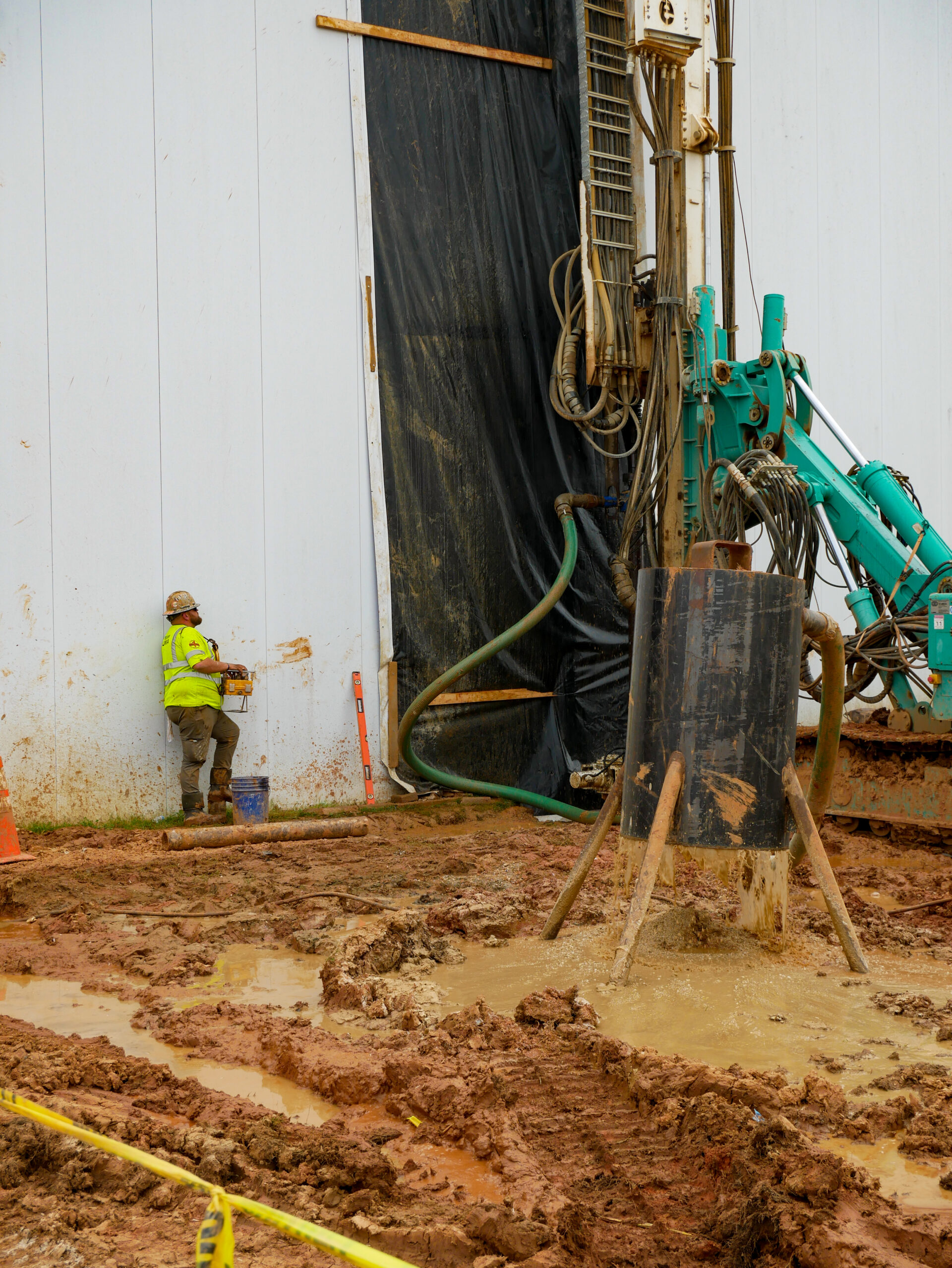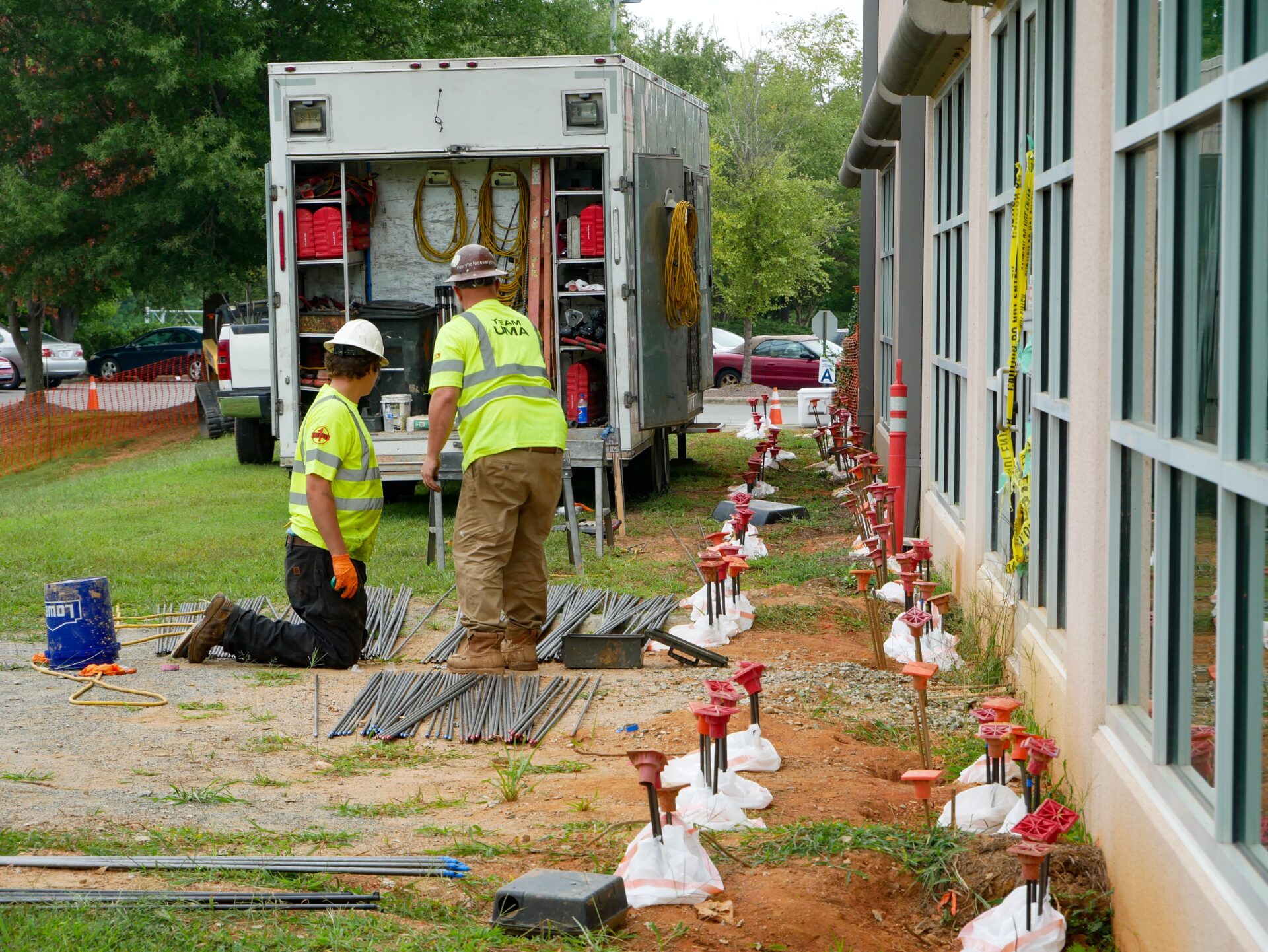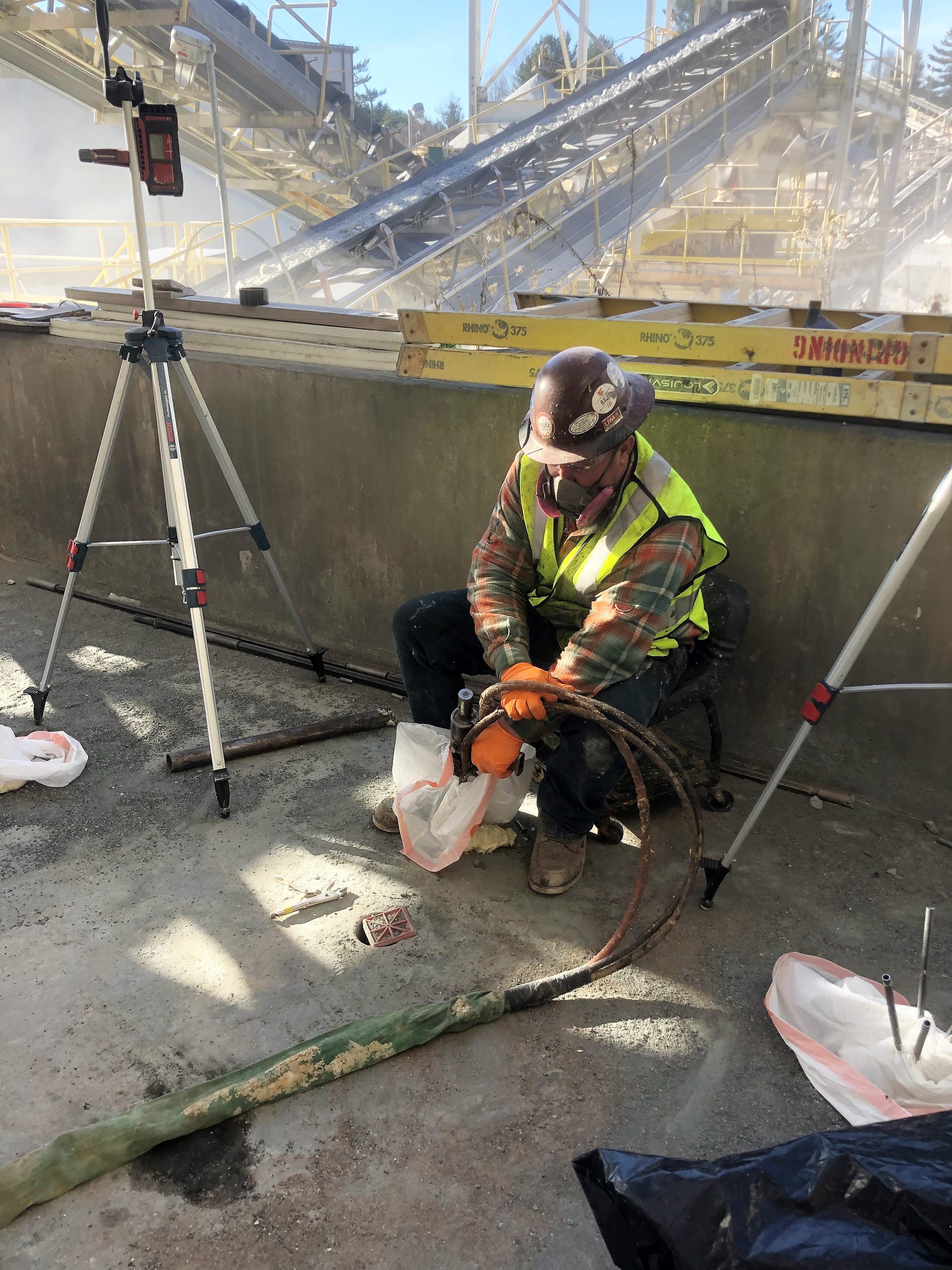Micropiles Support Immense Weight of Industrial Storage Area
Greensboro, North Carolina
This project consisted of the design and installation of 40 micropiles to support a material storage area at an industrial metalworking plant in Greensboro, North Carolina. UMA had installed micropiles at this site in 2012 when the plant was constructing an addition to increase its storage capacity.
Coilplus North Carolina processes large coils of flat steel at this plant. A single coil can weigh anywhere from 30,000 to 50,000 pounds, so micropiles were chosen in this addition to support the immense load.
For this mobilization, UMA was asked to install more micropiles in an existing section of the building that was also being used as a storage area for these heavy coils. Without the proper foundation support this area was showing signs of movement. Plant productivity was threatened since the overhead beams were out of alignment, which was causing issues with the overhead crane that was used to move the coils. UMA also saw cut the slab around the entire affected area in order to lessen the load that the inventory was placing on the footings.
UMA’s engineer designed the micropiles for this section of the building to be drilled to a depth of 68 feet with an 8-foot bond zone into competent bedrock, with some as deep as 72 feet and a 12-foot bond zone. These piles were cased the full length into rock with 5 1/2-inch casing. In order for these piles to be installed appropriate sized holes needed to be cored in the exiting footings outside of the building. Inside the building, holes were cored through the slab and footing. The connection of the micropiles to the existing footings utilized shear rings on the uppermost casing extension, which was then grouted to connect the two together.
The Coilplus project was a prime example of how micropiles are often the right deep foundation technique to support existing buildings. UMA was ultimately able to restore the integrity of the foundation without disrupting productivity at the plant.






